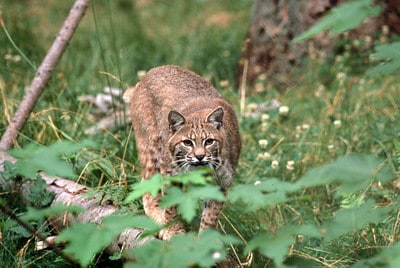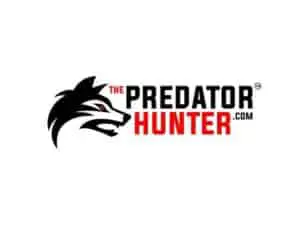If you are considering doing some bobcat hunting in North Carolina, here are some of the regulations you need to know. Since laws change and only you are responsible for hunting legally, please check for updates and changes before making your first stand.

In North Carolina, the bobcat hunting season runs from Oct. 18 – to Feb. 28. A license is required, and there are no bag limits. Legal hunting hours are 30 minutes before sunrise to 30 minutes after sunset. Night hunting and electronic callers are prohibited.
Purchase a North Carolina hunting license here.
Click here to see all North Carolina hunting seasons.
Related: If you have never hunted bobcats before, check out my article on the three vital tips for a successful bobcat hunt.
Related: Interested in coyote hunting in North Carolina? Read my article on the rules for hunting coyotes in North Carolina.
Related: Learn the laws for hunting fox in North Carolina.
Laws and regulations for bobcat hunting in North Carolina.
Suppressors. Suppressors are legal for hunting in North Carolina.
Callers. While electronic callers are prohibited, mouth and hand callers are allowed.
Read this article and watch the video to learn how to use a closed reed rabbit squealer.
Follow along as call manufacturer Brian Rush shows you three open reed calls you can learn and use today.
Decoys are legal. You can read about some highly effective but inexpensive ($20) coyotes decoys here.
General Restrictions for bobcat hunting in North Carolina.
- Lawful seasons and bag limits for each species apply beginning with the first day of the listed season and continuing through the last day of the listed season with Sunday hunting restrictions listed in the next paragraph.
On Sundays, the following apply:
Hunting with firearms between 9:30 a.m. and 12:30 p.m. is prohibited except on controlled hunting preserves;
Hunting migratory birds are prohibited;
The use of firearms to take deer that are run or chased by dogs is prohibited;
Hunting with a firearm within 500 yards of a place of worship or any accessory structure thereof is prohibited.
Archery equipment may be used to hunt on Sundays without restrictions on hunting with firearms.
Shooting hours: Game birds and animals may be taken only between 30 minutes before sunrise and 30 minutes after sunset with a rifle, pistol, shotgun, archery equipment, dogs, or by means of falconry with the following exceptions: raccoons, feral swine and opossums may be taken at night.
Coyotes may be taken at night in all counties except Beaufort, Dare, Hyde, Tyrrell, and Washington. Migratory game birds may be taken only during the hours and in the manner permitted by federal regulations. See Migratory Game Bird Regulations for shooting hours for migratory birds.
Can you kill a bobcat on your property in North Carolina?
Nuisance bobcats can also be taken year-round with a Depredation Permit, but a depredation permit is not required when controlling nuisance furbearers within 100 yards of a property owner’s residence.
The S.C. Department of Natural Resources issues this permit. Call your local wildlife management office or law enforcement field office to obtain a permit.
Related: Read this article to be sure you have a bobcat on your property: Reading bobcat sign.
Artificial lights and electronic callers illegal when bobcat hunting in North Carolina.
Artificial Lights and Electronic Calls
- It is unlawful to use artificial lights (including laser sights) and electronic or recorded calls in taking wild birds or animals except as follows:
- You can use artificial lights to retrieve harvested big game.
- Artificial lights may be used for taking feral swine and coyotes at night where legal.
- Artificial lights may be used for taking bullfrogs.
- Electronic or recorded calls are legal for crows, coyotes, and feral swine hunting. Other exceptions for migratory game birds may be found under individual season descriptions.
- When hunting with dogs during open seasons, raccoon and opossum may be taken at night using artificial lights commonly used to aid in taking raccoon and opossum.
- In addition to the prohibition of taking wildlife with artificial light, except for big game retrieval, many counties have local regulations that prohibit shining lights on deer or searching for deer with lights 30 minutes after sunset or after 11 p.m. A color-coded map showing county shining laws is on Deer Zone Maps.
- The flashing or display of any artificial light between 30 minutes after sunset and 30 minutes before sunrise in any area that is frequented or inhabited by wild deer by any person who has access to a firearm, crossbow or other bow and arrow constitutes prima facie evidence of taking deer with the aid of an artificial light.


